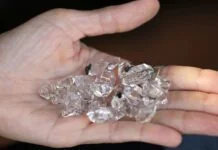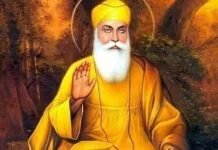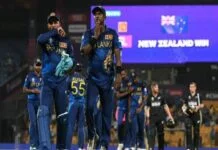Henry Kissinger passed away at 100
Henry Kissinger, the renowned former United States Secretary of State and Nobel Peace Prize laureate, passed away at the age of 100, as confirmed by Kissinger Associates Inc. A towering figure in diplomacy, his contributions to US foreign policy left an enduring imprint, serving under two presidents.
Kissinger peacefully passed away at his residence in Connecticut, according to a statement from Kissinger Associates. Remarkably active even after his centenary milestone earlier this year in May, Henry Kissinger engaged in various activities, including White House meetings, the publication of a book on leadership, and providing testimony before a Senate committee concerning the nuclear threat posed by North Korea.
Most notably, he surprised everyone by traveling to Beijing in July 2023 to meet with Chinese President Xi Jinping. During the 1970s, while serving as Secretary of State under President Richard Nixon, Kissinger played a pivotal role in numerous monumental global events.
His efforts led to the historic opening of diplomatic relations with China, crucial arms control negotiations with the Soviet Union, strengthened ties between Israel and its Arab neighbors, and the agreement between North Vietnam and the Paris Peace Accords.
Henry Kissinger’s tenure as the principal architect of US foreign policy diminished following Nixon’s resignation in 1974. Nevertheless, he continued to wield significant diplomatic influence under President Gerald Ford and remained outspoken on international affairs throughout his life.
While many celebrated Kissinger for his intellect and extensive experience, others criticized him as a war criminal due to his support for anti-communist dictatorships, particularly in Latin America. In his later years, his international travels were restricted due to efforts by foreign nations to question or arrest him concerning past US foreign policies.
His receipt of the 1973 Nobel Peace Prize, shared with North Vietnam’s Le Duc Tho (who declined the award), stirred controversy, leading to resignations from two Nobel Committee members. Questions were raised about the US’s secret bombing of Cambodia during that time.
President Ford praised Henry Kissinger as an exceptional Secretary of State but also highlighted his sensitivity and unwavering confidence, traits that critics often labeled as paranoia and egotism. Even Ford once commented, ”Henry was convinced he never made a mistake.”
Despite his stern demeanor and distinctive German-accented voice, Henry Kissinger had a reputation as a ladies’ man during his bachelor days, frequently escorting starlets around Washington and New York. He famously quipped that power was the ultimate aphrodisiac. While outspoken about policy matters, Kissinger maintained a reserved stance on personal issues, once likening himself to a solitary cowboy hero.
Born Heinz Alfred Henry Kissinger on May 27, 1923, in F¼rth, Germany, he immigrated to the United States with his family in 1938, fleeing the Nazi persecution of European Jews. Adopting the name Henry, Kissinger became a naturalized US citizen in 1943, serving in the Army in Europe during World War II.
He pursued higher education at Harvard University, earning a master’s degree in 1952 and a doctorate in 1954. He remained on Harvard’s faculty for the subsequent 17 years. During this time, Henry Kissinger advised various government bodies, notably serving as a go-between for the State Department in Vietnam in 1967, leveraging his connections within President Lyndon Johnson’s administration to convey peace negotiation information to the Nixon campaign.
Nixon, upon winning the 1968 presidential election, appointed Henry Kissinger as national security adviser. However, the process of “Vietnamisation” and the ongoing Vietnam War, marked by significant US bombings and military actions, prolonged the conflict despite Kissinger’s declaration of an imminent peace in 1972.
Elevated to Secretary of State in 1973, Kissinger’s diplomatic efforts included the famous “shuttle diplomacy,” personally mediating between conflicting parties, leading to a pivotal disengagement agreement between Israel and Syria in the Golan Heights. His outreach to China, culminating in Nixon’s historic summit with Chairman Mao Zedong, marked a significant breakthrough in US-China relations.
Despite his successes, Kissinger faced criticisms for his handling of various international crises, including alleged biases in the India-Pakistan conflict and involvement in supporting military coups in Latin America. Following his tenure in government, Kissinger established a prominent consulting firm in New York, catering to global corporate leaders.
He remained active in academia, serving on boards, participating in foreign policy discussions, writing books, and offering regular insights as a media commentator on international affairs. Bush selected Kissinger to lead an investigative committee.
However, objections from Democrats citing potential conflicts of interest with his consulting firm’s clients led to Henry Kissinger stepping down from the position. Having divorced his first wife, Ann Fleischer, in 1964, Kissinger remarried Nancy Maginnes, an aide to New York Governor Nelson Rockefeller, in 1974. He had two children from his initial marriage.





